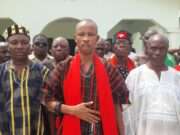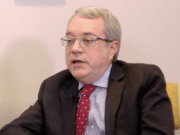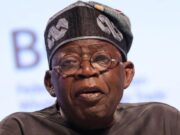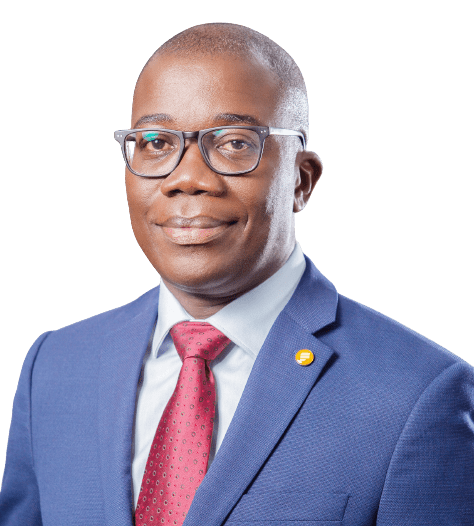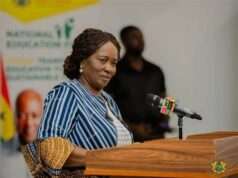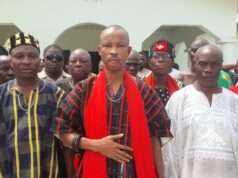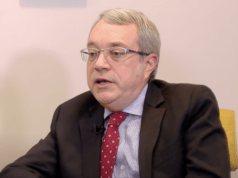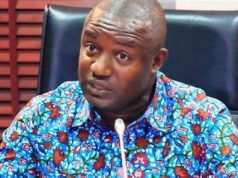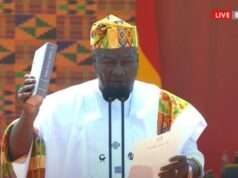Fidelity Bank Ghana promoted the growth of Small and Medium Enterprises in Ghana in 2024 with loans totalling GH¢427 million, reinforcing the bank’s strong commitment to Ghana’s economic growth.
This financial injection, according to the bank, has created over 35,000 jobs, contributing an impressive GH¢3.08 billion to the national economy.
At a media engagement with some Editors and Senior Journalists in Accra on Wednesday 26th March, 2025, the Managing Director of Fidelity Bank, Mr Julian Opuni said this initiative underscores the bank’s dedication to fostering financial empowerment and business development across the country.
Resilience amid economic challenges
Mr. Julian Opuni said despite economic instability, rising loss provisions, and regulatory shifts, notably the Domestic Debt Exchange Programme, Fidelity Bank has demonstrated remarkable resilience.
He disclosed that since 2022, the bank has maintained consistent profitability, with total assets significantly increasing, driven by customer deposits.
The MD added that while the 2024 audited financial report is yet to be released, the bank has reported exceptional performance, with revenue and profits exceeding expectations.
Furthermore, the bank’s Non-Performing Loans (NPL) ratio remains well below the industry average, reflecting strong financial management.
Driving innovation and the creative economy
The bank has also announced the opening of applications for the building of its Fidelity Greentech Innovation Challenge (GTIC) 2025 in the second quarter of this year.
With GH¢700,000 in grants and up to GH¢1 million in concessionary loans, this initiative supports youth-led innovation and sustainable enterprises, particularly in agriculture.
Mr. Julian Opuni said recognizing Ghana’s thriving creative economy, the Fidelity Bank is also launching Orange Inspire – Fidelity Bank’s Creative Fund.
This initiative, according to him, will provide targeted funding, infrastructure support, and mentorship for creatives in fashion, film, art, and digital content.
The Managing Director explained that the funding allocations will range from GH¢450,000 for young creatives to GH¢1 million for established projects, combining grants and concessionary loans to position Ghana’s creative sector for global success.
CSR and community development
According to Mr. Julian Opuni, the Fidelity Bank has invested GH¢5.74 million in Corporate Social Responsibility (CSR) initiatives in 2024, directly benefiting over 26,000 individuals, with a strong focus on women’s empowerment.
He said the bank’s employee volunteering programme has also thrived, with staff dedicating over 1,396 hours to various community projects.
Fidelity’s health initiative
Mr. Julian Opuni emphasized the bank’s Wellness4All Programme, which supports essential health initiatives, including obstetric fistula treatment, cancer awareness, and mental health support.
He assured the public of the bank’s unwavering commitment to delivering shared value by ensuring business growth positively impacts communities and the environment.
From discount house to banking powerhouse
According to Mr. Julian Opuni, Fidelity Bank’s journey began as a discount house, and after seven years of strong performance, it transitioned into a fully-fledged bank in 2006.
The bank’s success, according to hi, is credited to visionary leaders like Edward Effah and Jim Baiden, whose mission was to redefine banking by making it more customer-focused and accessible.
Within six months of launching, Fidelity Bank turned a profit and was recognized as the Best Growing Bank of the Year in 2006.
A leader in financial inclusion
Mr. Julian Opuni said the Fidelity Bank has been at the forefront of promoting financial inclusion, ensuring banking services reach the underbanked and unbanked populations.
Through its extensive agency banking network, comprising over 8,000 agents, the bank has extended financial services to some of the most remote areas of Ghana.
The Smart Account initiative has simplified account opening, while pilot programs for tailored loans continue to support 1.7 million financially underserved customers.
The bank also invests in training and certifying its agents to enhance service delivery.
Embracing digital transformation
As technology reshapes the banking industry, Fidelity Bank remains committed to enhancing its digital capabilities.
A newly established Special Projects Office at its Head Office has been created to integrate core banking, digital, and optimization teams, fostering innovation and improving customer experiences.
Fighting fraud and promoting financial literacy
Fraud, particularly social engineering scams, remains a pressing challenge in the banking industry.
Fidelity Bank recognizes this as a national issue and is calling on stakeholders, including the media, to collaborate in raising awareness and promoting financial literacy.
Commitment to sustainability
Mr. Julian Opuni said sustainability is a key focus for Fidelity Bank.
The bank has enhanced its Environmental and Social Risk Assessments (ESRAs) and implemented measures to reduce its environmental footprint. Notable achievements include recycling 3.74 tonnes of paper, increasing the use of renewable energy, and cutting emissions.
Additionally, the bank prioritizes sustainability in its procurement processes, with 90% of vendors being local.
Responsible business practices also guide its lending decisions, ensuring that financial support aligns with ethical and sustainable business operations.
Through sustainable finance, Fidelity Bank continues to support key sectors, including agriculture, SMEs, and women entrepreneurs.
Initiatives such as the Fidelity Young Entrepreneurs Initiative (FYEI), the Orange Corners Innovation Fund (in partnership with the Kingdom of the Netherlands), and its collaboration with the Mastercard Foundation on the Bridge in Agriculture program have significantly impacted Ghana’s economy.
With a strong commitment to innovation, inclusion, and sustainability, Fidelity Bank Ghana continues to set the benchmark for excellence in banking, empowering communities and businesses while shaping the future of Ghana’s financial sector.





